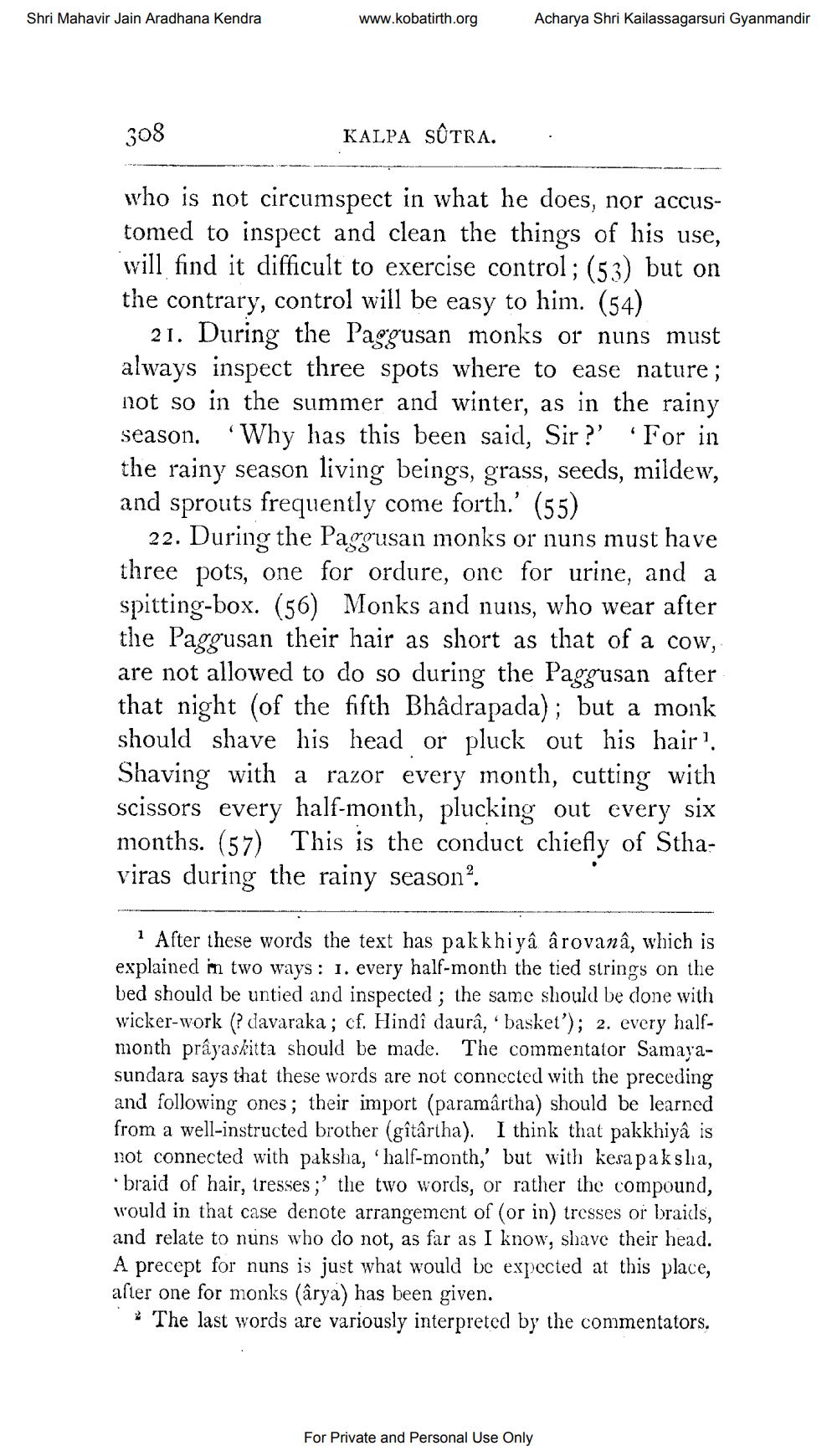________________
Shri Mahavir Jain Aradhana Kendra
www.kobatirth.org
Acharya Shri Kailassagarsuri Gyanmandir
308
KALPA SÛTRA.
.
who is not circumspect in what he does, nor accustomed to inspect and clean the things of his use, will find it difficult to exercise control; (53) but on the contrary, control will be easy to him. (54)
21. During the Paggusan monks or nuns must always inspect three spots where to ease nature; not so in the summer and winter, as in the rainy season. “Why has this been said, Sir?' 'For in the rainy season living beings, grass, seeds, mildew, and sprouts frequently come forth.' (55)
22. During the Paggusan monks or nuns must have three pots, one for ordure, one for urine, and a spitting-box. (56) Monks and nuns, who wear after the Paggusan their hair as short as that of a cow, are not allowed to do so during the Paggusan after that night (of the fifth Bhâdrapada); but a monk should shave his head or pluck out his hair", Shaving with a razor every month, cutting with scissors every half-month, plucking out every six months. (57) This is the conduct chiefly of Sthaviras during the rainy season?.
After these words the text has pakkhiyâ ârovanâ, which is explained in two ways: 1. every half-month the tied strings on the bed should be untied and inspected; the same should be done with wicker-work (? davaraka ; cf. Hindi daurâ, 'basket'); 2. every halfmonth prâyashitta should be made. The commentator Samayasundara says that these words are not connected with the preceding and following ones; their import (paramârtha) should be learned from a well-instructed brother (gîtârtha). I think that pakkhiyâ is not connected with paksha, half-month,' but with kesapaksha.
braid of hair, tresses;' the two words, or rather the compound, would in that case denote arrangement of (or in) tresses or braids, and relate to nuns who do not, as far as I know, shave their head. A precept for nuns is just what would be expected at this place, after one for monks (ârya) has been given.
* The last words are variously interpreted by the commentators.
For Private and Personal Use Only




